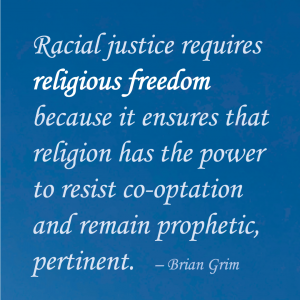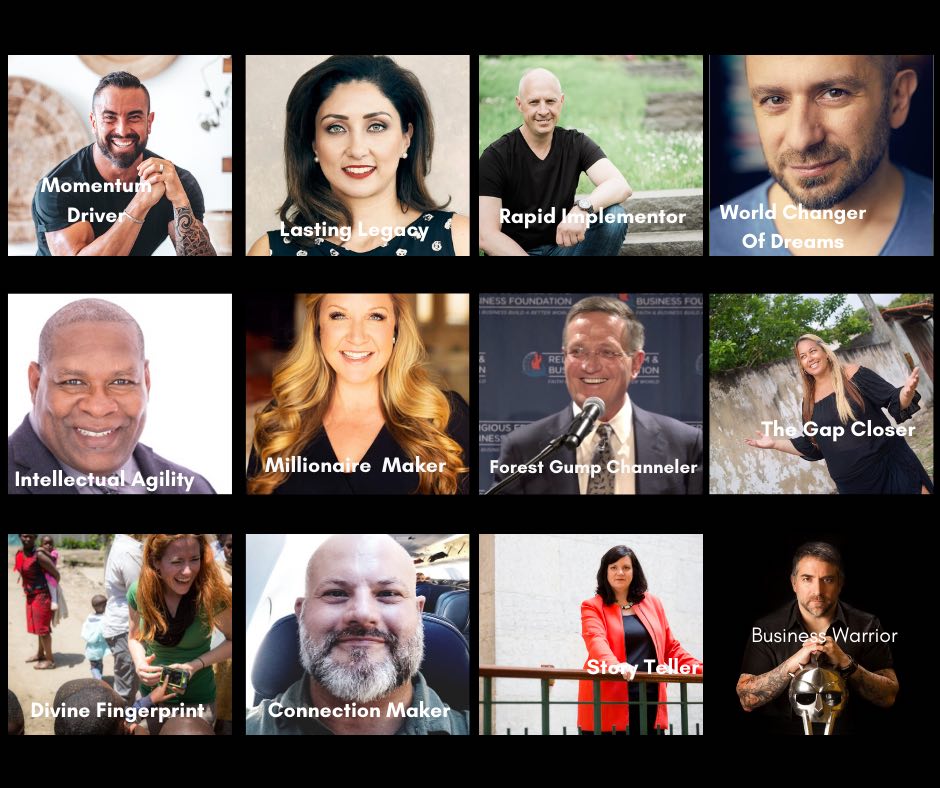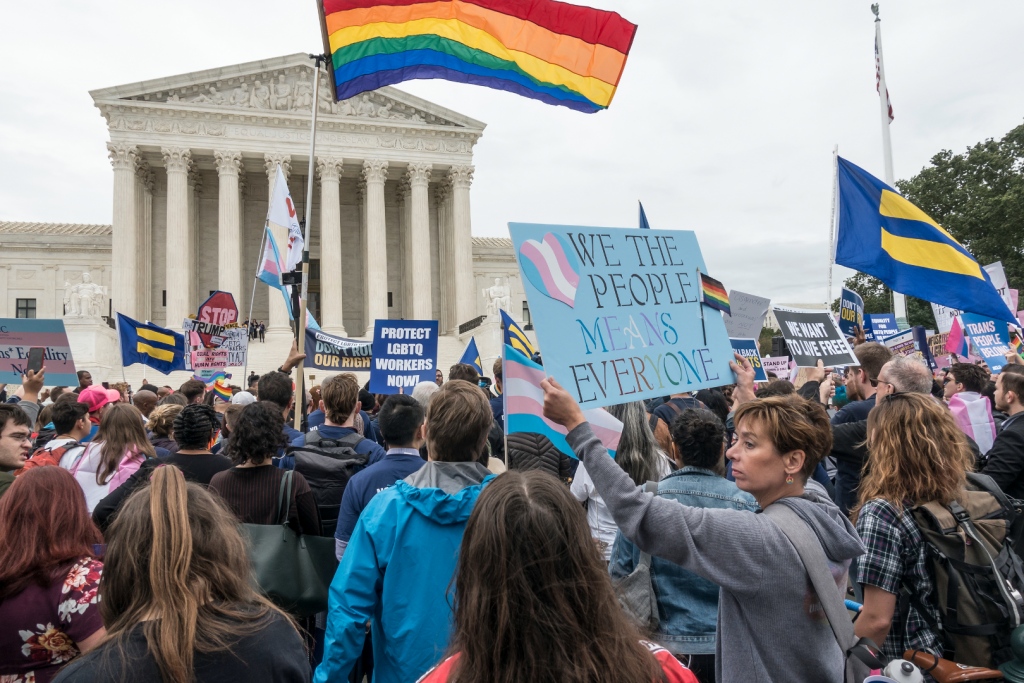
Photo: WASHINGTON, DC – OCT. 8, 2019 – Rally for LGBTQ rights outside Supreme Court as Justices hear oral arguments in three cases dealing with discrimination in the workplace because of sexual orientation.
The Supreme Court decided on Monday that U.S. civil rights law prohibits employers from discriminating against workers on the basis of sexual orientation and gender identity. The 6-3 decision extends federal workplace protections to lesbian, gay, bisexual, and transgender (LGBT) employees nationwide.
As reported in the WSJ, only 22 states have passed laws that protect LGBT employees from workplace discrimination. For workers in the states with no such laws, the ruling could make a big difference.
The ruling leaves unanswered the full impact on faith-based employers in the US and creates a need for more legal clarity on religious protections. However, as I explain below, data suggest that this new ruling need not undermine religious freedom but could result in higher religious freedom.
The concern for more clarity and reinforced protections for religious freedom is expressed eloquently by Hal Boyd and Robert Snyder is how to balance the areas where certain religious beliefs run counter to the law of the land:
As Justice Neil Gorsuch wrote for the majority today in its 6-3 ruling protecting LGBTQ workers, “the promise of the free exercise of religion … lies at the heart of our pluralistic society.” This promise, however, requires concerted vigilance as new majorities and minorities emerge. For religious individuals and employers in this country, a number of questions remain.
Though well-intentioned, the ruling may unleash potential legal problems for faith-based organizations, including schools and universities. Its reasoning also raises substantial questions about entirely benign separations of sexes at work, such as with restrooms, locker rooms and so forth.
Truth, the Danish philosopher Søren Kierkegaard once observed, “always rests with the minority, and the minority is always stronger than the majority, because the minority is generally formed by those who really have an opinion.” But soon, Kierkegaard wrote, the strength of the minority view captures the majority.
The Institutional Religious Freedom Alliance responded as follows:
The U.S. Supreme Court today extended federal employment protection to LGBT employees in a decision that affirms that important issues remain, including uncertainties for religious employers. The Institutional Religious Freedom Alliance affirms extending federal protections to LGBT employees. Congress should act to resolve the uncertainties for religious employers by adopting H.R. 5331, known as the Fairness for All Act.
For reactions to the various legislation seeking to resolve the uncertainties, see here, and for a discussion of the institutional religious freedom concerns, see here.
Three bits of data can help in providing some perspective on these concerns.
First, it is a false dichotomy to put religious people on one side and LGBT people on the other side of the issue. The Pew Research Center’s data show that while LGBT people are not as religious as the general population, nearly one-in-two identify as Christian (see chart below). And further, and additional 11 percent identify with other faiths, meaning about 6-in-10 LGBT people identify with a religious faith.
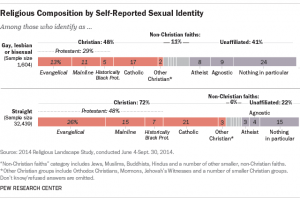 While the Pew data are a bit dated now, a more recent survey of LGBT people had similar findings.
While the Pew data are a bit dated now, a more recent survey of LGBT people had similar findings.
Second, by way of perspective, although the Supreme Court decision for the first time extends federal workplace protections to LGBT employees nationwide, the Equal Employment Opportunities Commission (EEOC) has already been interpreting the foundational Civil Rights law to include sexual orientation:
“Under the laws enforced by EEOC, it is illegal to discriminate against someone (applicant or employee) because of that person’s race, color, religion, sex (including gender identity, sexual orientation, and pregnancy), national origin, age (40 or older), disability or genetic information.” – EEOC Prohibited Employment Policies/Practices [bolded to highlight]
In fact, the EEOC has been tracking complaints of workplace discrimination on the basis of sexual orientation since 2013, a practice that has continued during the Trump administration. And despite much attention being paid by corporate America to combat LGBT workplace discrimination, cases of LGBT discrimination have been on the rise.
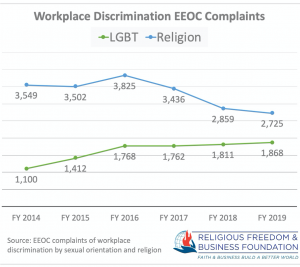 But an important part of this context is that the EEOC also consistently tracks complaints of workplace discrimination on the basis of religion. In FY 2019 there were 2,725 reported cases of religious discrimination compared with 1,868 reported cases of LGBT-based discrimination, as shown in the chart.
But an important part of this context is that the EEOC also consistently tracks complaints of workplace discrimination on the basis of religion. In FY 2019 there were 2,725 reported cases of religious discrimination compared with 1,868 reported cases of LGBT-based discrimination, as shown in the chart.
While complaints of religious discrimination outnumber those of sexual orientation, the trends are important to note. As the EEOC has paid attention to LGBT bias, the number of religiously biased cases has decreased, also as shown in the chart. This is an indication that concern over one form of discrimination may translate into an overall less discriminatory environment for other protected classes.
Third, there is evidence globally that this pattern of attention paid to LGBT discrimination coincides with decreased religious discrimination.
In 2019, as a social scientist studying the economic value of religious freedom worldwide (see my latest report), I took note of a new study showing that the economies of countries did better when they protected the rights of LGBT people to live openly without discrimination and enjoy equal rights, personal autonomy, and freedom of expression and association. That raised a question: If both are positively correlated with global economic growth, what is their relationship to each other?
The answer found by the study surprised many. When religious freedom is protected, LGBT people fare better, and vice versa: when LGBT people are protected, religious freedom increases.
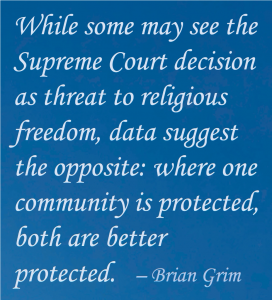 It was surprising because “religious freedom” (in the U.S. at least) has become a divisive issue in, mostly centered on issues related to sexuality and marriage. One side sees religious freedom as a protection against having to accommodate things they cannot conscientiously support, e.g., same-sex marriage. The other side sees that argument as discriminatory and a violation of civil rights law especially now that same-sex marriage is legal throughout the US.
It was surprising because “religious freedom” (in the U.S. at least) has become a divisive issue in, mostly centered on issues related to sexuality and marriage. One side sees religious freedom as a protection against having to accommodate things they cannot conscientiously support, e.g., same-sex marriage. The other side sees that argument as discriminatory and a violation of civil rights law especially now that same-sex marriage is legal throughout the US.
You can find the complete study here. The main findings are: First, countries with higher levels of religious freedom have higher levels of LGBT rights. Or put another way, religious freedom fosters a positive environment for LGBT people. Second, support for LGBT rights is increasing in countries with higher levels of religious freedom. Third, religious freedom is likewise higher in countries where there is higher support for LGBT rights. And fourth, countries with low levels of social hostilities involving religion have higher support for LGBT rights.
While some may see the Supreme Court decision as threat to religious freedom, the data show the opposite: where one community is protected, both are better protected.

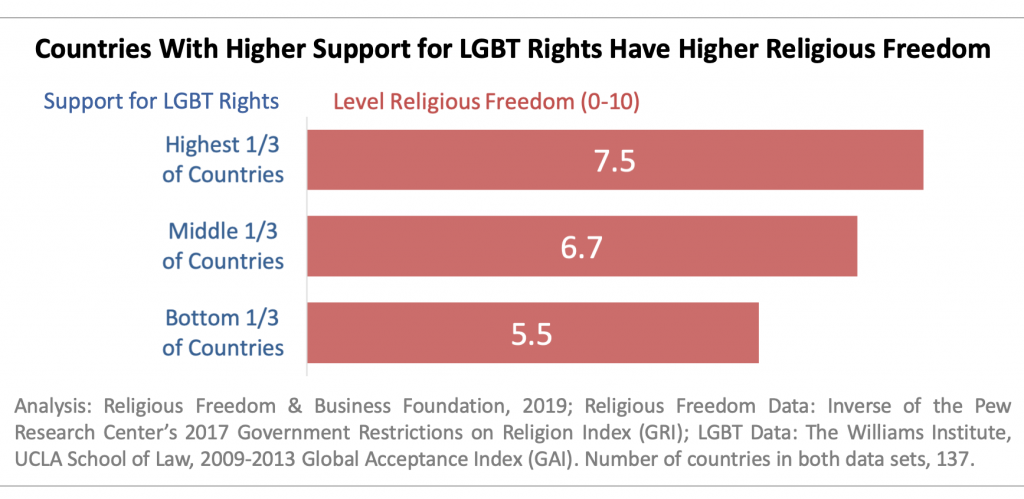
 Being Religiously Inclusive Promotes Racial and Broader Inclusion
Being Religiously Inclusive Promotes Racial and Broader Inclusion
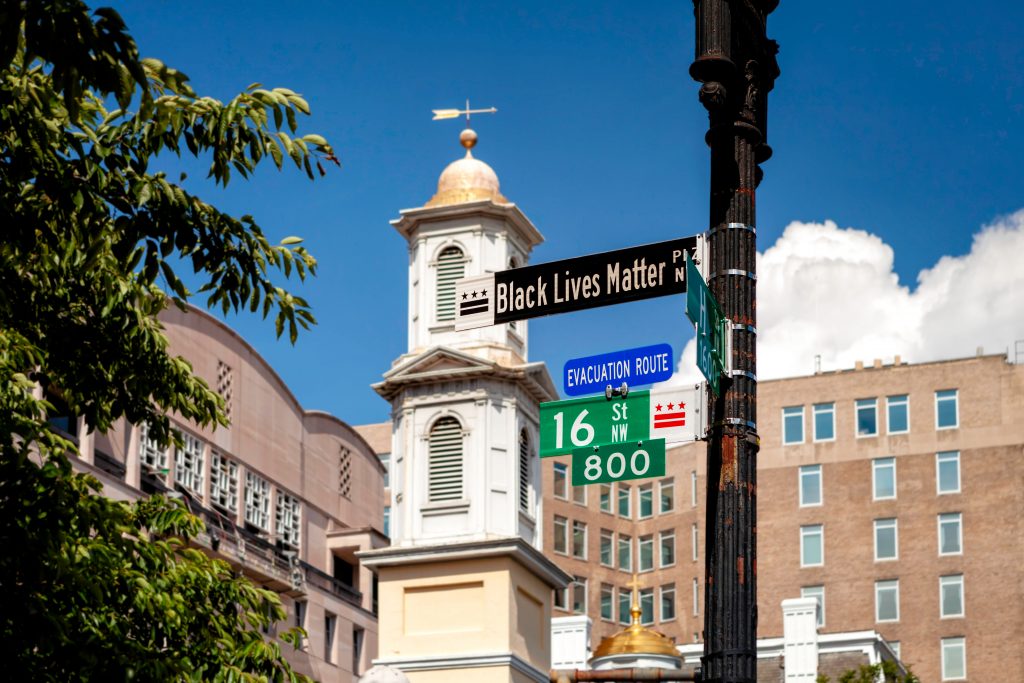 Photo: Washington, DC, USA – June 5 2020: Street sign at the newly designated Black Lives Matter Plaza, with the steeple of St. John’s Episcopal Church in the background
Photo: Washington, DC, USA – June 5 2020: Street sign at the newly designated Black Lives Matter Plaza, with the steeple of St. John’s Episcopal Church in the background